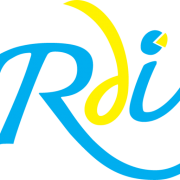The Relationship Between Transformational Leadership and Organizational Commitment Affecting the Job Performance of Employees in an Electronics Manufacturing Company Located in Amata City Industrial Estate, Chonburi Province
Keywords:
Transformational leadership, Organizational commitment, PerformanceAbstract
The purposes of this study were 1) to study the perception of transformational leadership, organizational commitment, and job performance, 2) to analyze the relationship between transformational leadership and organizational commitment, and 3) to analyze the impact of transformational leadership and organizational commitment on Job performance. The research sample consisted of 310 operational-level employees from an electronics company. The data was collected through a stratified questionnaire survey. Statistical analyses included frequency, standard deviation, Pearson correlation coefficient, and multiple linear regression. The study found that there was a positive correlation between transformational leadership and organizational commitment, as well as a positive impact of transformational leadership on employee performance. Additionally, organizational commitment positively influenced employee performance, with statistical significance at the 0.01 level.
Downloads
References
ทรงศักดิ์ ภูสีอ่อน. (2561). การประยุกต์ใช้ SPSS วิเคราะห์ข้อมูลงานวิจัย. (พิมพ์ครั้งที่ 8). มหาสารคาม : ตักสิลาการพิมพ์.
ธานินทร์ ศิลป์จารุ. (2553). การวิจัยและการวิเคราะห์ข้อมูลทางสถิติด้วย SPSS. (พิมพ์ครั้งที่ 11). กรุงเทพมหานคร : บิสซิเนสอาร์แอนด์ดี.
รัตนพล อุปฐานา, มาเรียม นะมิ และอัมพล ชูสนุก. (2559). ภาวะผู้นําการเปลี่ยนแปลงที่มีอิทธิพลต่อความพึงพอใจในงาน ความผูกพันต่อองค์กร และผลการปฏิบัติงานของพนักงานธนาคารทิสโก้จํากัด (มหาชน). วารสารปัญญาภิวัฒน์. 8 (พิเศษ), น. 39-51.
วิจัยกรุงศรี. (2566). แนวโน้มธุรกิจและอุตสาหกรรมไทย 2566 – 68. ค้นเมื่อ 20 มกราคม 2567, จาก https://www.krungsri.com/th/research/industry/summary-outlook/industry-outlook-2023-2025.
วิฑูรย์ โชตนะพันธ์ (2563). ความสัมพันธ์ระหว่างความผูกพันของพนักงาน พฤติกรรมการเป็นสมาชิกที่ดีขององค์กร และผลการปฏิบัติงานส่วนบุคคล กรณีศึกษาการประปานครหลวง. รายงานการศึกษาอิสระปริญญาบริหารธุรกิจมหาบัณฑิต สาขาวิชาการจัดการธุรกิจสากลมหาวิทยาลัยธรรมศาสตร์.
ศุภวรรณ คงเสมา, สุภาษา บุญยงค์ และกัมปนาท วงษ์วัฒนพงษ์. (2565). วัฒนธรรมองค์กร เงื่อนไขสําคัญของการสร้างความได้เปรียบในการแข่งขัน. วารสารศูนย์พัฒนาการเรียนรู้สมัยใหม่. 7 (12), น. 369-379.
ศูนย์ข้อมูลเชิงลึกสำหรับอุตสาหกรรมไฟฟ้าและอิเล็กทรอนิกส์. (2566). รายงานภาวะอุตสาหกรรมไฟฟ้าและอิเล็กทรอนิกส์ประจำปี 2566. ค้นเมื่อ 21 กุมภาพันธ์ 2567, จาก
https://eiu.thaieei.com/Home/IndustryReportContent?OutlookID=189.
สุกฤษฏิ์ ขวัญเมือง (2559). การศึกษาความสัมพันธ์ของภาวะผู้นำแบบสร้างการเปลี่ยนแปลงที่ส่งผลต่อความพึงพอใจในงานและความผูกพันต่อองค์กรของข้าราชการสังกัดกรุงเทพมหานคร. รายงานการศึกษาอิสระปริญญารัฐศาสตรมหาบัณฑิต สาขาวิชาบริหารรัฐกิจและกิจการสาธารณะ มหาวิทยาลัยธรรมศาสตร์.
สำนักโฆษกสำนักเลขาธิการนายกรัฐมนตรี (2560). Thailand 4.0 ขับเคลื่อนอนาคตสู่ความ มั่นคง มั่งคั่ง ยั่งยืน. วารสารไทยคู่ฟ้า. (33), น. 1-43 ค้นเมื่อ 20 มิถุนายน 2563, จาก https://media.thaigov.go.th/uploads/document/66/2017/09/pdf/Thaikhufah03_2560.pdf.
โสมย์สิรี มูลทองทิพย์. (2556). ความผูกพันต่อองค์กรของบุคลากรที่ปฏิบัติงานในโรงเรียนมัธยมศึกษา อําเภอท่ามะกา. รายงานการศึกษาอิสระปริญญาศิลปศาสตรมหาบัณฑิต สาขาวิชาการจัดการภาครัฐและภาคเอกชน มหาวิทยาลัยศิลปากร.
Avolio, B. J. & Bass, B. M. (1991). The full range leadership development programs: Basic and advanced manuals. Binghamton, NY: Bass, Avolio & Associates.
Armstrong, M. (2014). A handbook of human resource management practice. (13th ed). London: Kogan Page.
Bass, B. M. (1997). Personal selling and transactional transformational leadership. Journal of Personal Selling & Sales Management. 17 (3), pp. 19-28.
Bass, B. M. (1999). Two decades of research and development in transformational leadership. European journal of work and organizational psychology. 8 (1), pp. 9-32.
Best, J. L. (1981). The morphology of river channel confluences. Progress in Physical Geography. 5 (1), pp. 19-47.
Glass, G. V. & Hopkins, K. D. (1984). Statistical methods in education and psychology. (2nd ed). New Jersey: Prentice-Hall.
Meyer, J. P. & Allen, N. J. (1991). A three-component conceptualization of organizational commitment. Human resource management review. 1 (1), pp. 61-89.
Pradhan, S. & Pradhan, R. K. (2015). An empirical investigation of relationships among transformational leadership, affective organizational commitment and contextual performance. SAGE. 19 (3), pp. 227-235.
Tavakol, M. & Dennick, R. (2011). Making sense of Cronbach's alpha. International journal of medical education. 2, p. 53.
Downloads
Published
How to Cite
Issue
Section
License
Copyright (c) 2024 Dhonburi Rajabhat University

This work is licensed under a Creative Commons Attribution-NonCommercial-NoDerivatives 4.0 International License.
บทความที่ได้รับการตีพิมพ์เป็นลิขสิทธิ์ของ มหาวิทยาลัยราชภัฏธนบุรี
ข้อความที่ปรากฏในบทความแต่ละเรื่องในวารสารวิชาการเล่มนี้เป็นความคิดเห็นส่วนตัวของผู้เขียนแต่ละท่านไม่เกี่ยวข้องกับมหาวิทยาลัยราชภัฏธนบุรีและบุคลากรท่านอื่นๆในมหาวิทยาลัยฯ แต่อย่างใด ความรับผิดชอบองค์ประกอบทั้งหมดของบทความแต่ละเรื่องเป็นของผู้เขียนแต่ละท่าน หากมีความผิดพลาดใดๆ ผู้เขียนแต่ละท่านจะรับผิดชอบบทความของตนเองแต่ผู้เดียว







